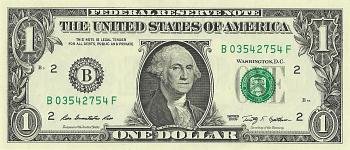The fate of capitalism hangs in the balance of international power
This is the fifth in a seven-part, multi-week series of commentary on the COVID-19 crisis entitled WHAT IS TO BE DONE? A MANIFESTO FOR POLITICS AMID THE PANDEMIC AND BEYOND by Radhika Desai, Professor of Political Studies and Director of the Geopolitical Economy Research Group at the University of Manitoba.
International relations amid the pandemic suddenly acquired definition when the United States launched its new Cold War against China. No Trumpian discontinuity, it follows Obama’s ‘pivot to Asia’ signalling defeat after decades trying to win China over to neoliberal capitalism. Like the original Cold War, the new one responds to an existential threat. Only stupefying ‘end-of-history’ triumphalism prevents most from recalling the seriousness of the Soviet threat and the strenuousness of the West’s original Cold War.
The challenge of China today is even more serious. The US and the USSR were comparably powerful and stable. Today, by contrast, the US, like neoliberal financialized capitalisms everywhere are facing nemesis. The pandemic has been a real world stress test in which China has scored highly, while the US has earned a failing grade (if not worse). In general, countries less invested in neoliberal financialized capitalism–whether capitalist ones like Germany, Japan or South Korea or socialist ones like Cuba and Vietnam–have succeeded against the pandemic while its lead nations, the US and the United Kingdom are the most notable failures.
Neoliberalism freed capital from restrictions allegedly to revive its dynamism. However, it succeeded only in creating and maintaining a predatory and crisis-prone financialized economy and an international dollar regime, a veritable world ‘creditocracy,’ enriching tiny national and international financial elites and impoverishing the vast majority. State capacities were whittled down to one sacred power, a monetary policy of supplying torrents of liquidity to the world creditocracy to keep its speculative parties–bubbles in stock, credit, commodity and ‘emerging’ markets–going. Even military power, critical to policing the world creditocracy’s access to profit opportunities, has been so mismanaged to such a serious degree that it has failed to achieve even an approximation of domination, let alone peace or harmony despite gargantuan military spending and endless aggression.
The election of disingenuous reprobates like Donald Trump and Boris Johnson already signalled how far the inevitable loss of domestic trust and legitimacy had advanced before the pandemic. The shambolic pandemic responses of these inept leaders have undermined them further, making any return to ‘normalcy’ impossible. The pandemic is, moreover, reacting sulphurously with the decaying US political system in this presidential election year. Mounting police repression, debts, unemployment and homelessness have already rocked the country with protests that have pushed politics far beyond the Democratic Party’s cramped vision. Trump supporting agent provocateurs have sought to taint the protests with violence. To cap it all, it appears likely that either loser will seek to mobilize supporters to contest the electoral outcome and military intervention may become necessary to determine the November election outcome. Neither neoliberal financialized capitalism nor the world creditocracy that sustains it can remain untouched.
The new Cold War waged by a power in precipitous decline will certainly be unpredictable, desperate and dangerous. It will also be portentous. The International Monetary Fund’s June 2020 World Economic Outlook projects that China’s recovery will be the strongest by far, with 15 percent growth over 2020 and 2021. While other emerging economies will grow by two percent, the advanced economies will remain one percent short of their early 2020 level of GDP. As the balance tips in favour of a planned market economy, socialism will once again appear on the world’s political horizon, this time more surely. For the first time in capitalism’s history, a non-capitalist country ruled by a communist party-state will lead world growth. Its demonstration effect and economic magnetism will draw other countries, while neoliberal negative examples will repel them.
Comments
There are 0 comments on this post






